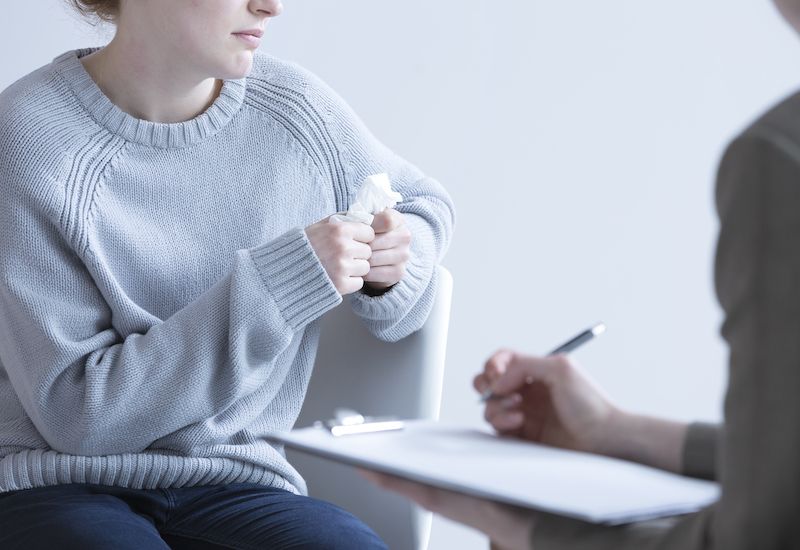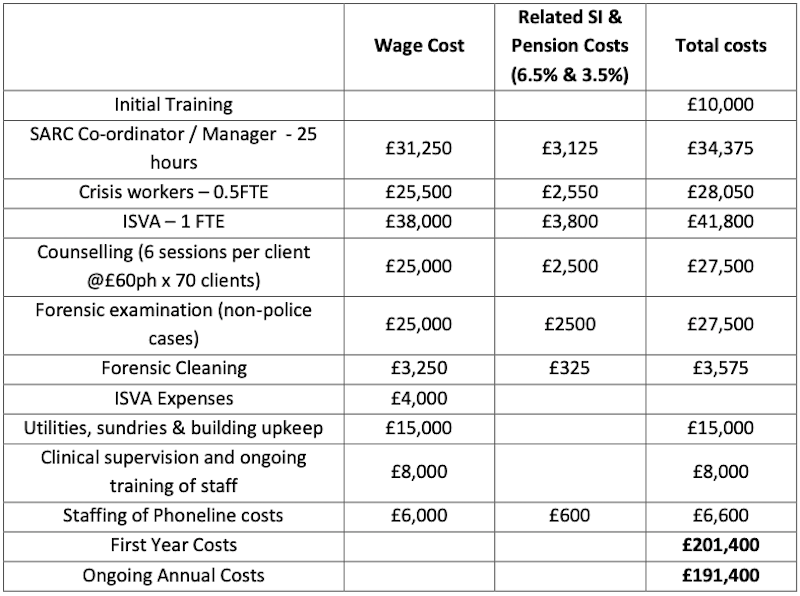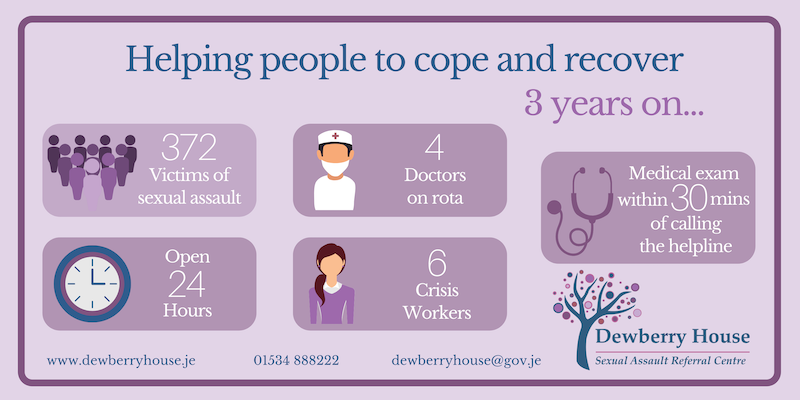


A Sexual Assault Referral Centre has been proposed in order to fill some of the "critical gaps" in the crisis support available for victims and survivors of abuse, many of whom feel unable to come forward.
Deputies Yvonne Burford and Sasha Kazantseva-Miller want the States to commission a SARC - a type of support centre that is common across the UK. A similar facility was created in Jersey in 2017 and has since helped hundreds of islanders at a time of physical and emotional crisis.
A report accompanying the amendment identifies some gaping holes in the current system and suggests that the full extent of sexual abuse in Guernsey goes under-reported in the absence of specialist support.
"Sexual assault is such a hidden issue, with the majority of victims feeling unable to come forward," the report states.
"When they do there is no clear pathway of support, and often agency staff are not trained in trauma-informed working practices, so their response can sometimes make clients disengage with support.
"For those who are unable to obtain treatment, the damage caused can have a long-term impact on lives if support is not provided."

Pictured: Running a Sexual Assault Referral Centre is estimated to cost just shy of £200,000 a year.
2019 crime data shows that there were 34 reports of sexual assault against adult women; 24 sexual assaults against girls; 1 sexual assault against an adult male; 6 sexual assaults against boys; and 51 reported acts of rape, 10 of which were historic.
In the Justice Review report produced last year, UK consultancy service Do-it-Justice said "there is some evidence to suggest that these offences are more prevalent in the Bailiwick than shown by police-recorded crime figures", adding that "prosecution does not provide a solution for everyone".
Using Bailiwick Law Enforcement's 2019 rape figures as an example, 21 of the 51 reports were dropped by the complainant, who chose not to pursue a prosecution.
Qualitative research also indicates that only a fraction of assaults ever get logged with police.
Domestic abuse charity Safer said that during the 24 months between 1/11/2017 and 31/10/2019, 80 clients reported experiencing sexual abuse. "Very few" of these had reported the abuse to BLE.

Pictured: Jersey set up a SARC in May 2017 and published this infographic last May, three years on.
National figures indicate that around 80% of sexual assaults and 92% of rapes are committed by men against women and children.
The 2018 Crime Survey for England and Wales estimated that 700,000 people aged between 16-59 were victims of sexual assault in the previous 12 months.
Less than one in five victims of rape or assault by penetration reported their experience to the police and of that one in five, only 1.4% reached court and received a conviction.
Using assault rates in the South East of England as a comparator and applying the same methodology to Guernsey would equate to around 400 adults in that age range, mostly women, being assaulted or raped every year.
Pictured: Guernsey's Director of Public Health Dr Brink has visited the Jersey SARC and is reportedly keen to develop an on-island service.
In the UK, around 40% of SARC patients are previously known to mental health services, and at least 65% will go on to develop a mental illness such as PTSD because of the trauma they have gone through.
Guernsey's Justice Review Report, which was informed by an independent UK consultancy, said that formalising support pathways was of extreme importance.
“The absence of a sexual abuse referral centre and crisis helpline for victims of sexual violence was identified as a critical gap by several different stakeholders," says the Do-it-Justice report.
"Preliminary discussions have taken place between the Offices of the CfHA and CfHSC in respect of the merits of creating a SARC.”
Pictured: Deputy Burford's amendment has no financial implications to the States at this stage. All of the emerging recovery actions in the GWP are subject to resourcing decisions later this year.
Amendment proposer Deputy Yvonne Burford said: "It would provide a one stop shop for health and social care needs as well as the opportunity to collect forensic evidence that will support any future court proceedings.
"This should be run by the third sector in order to provide independence, flexibility and the specialist knowledge required."
Premises could be made available by police at no extra cost, with discussions already underway. She says that running a SARC at a cost of around £200,000 per year would achieve four key outcomes.
reducing the mental illness, self-harm, physical injury and suicide caused by sexual victimisation;
increased safety and reducing re-victimisation;
improved quality of life of victims and survivors;
helping to prevent continued and new offending through early and effective interventions with abusers.
The amendment will be debated next week as part of the Government Work Plan, where it will be proposed for inclusion as one of the States' 'emerging recovery actions'.
Comments
Comments on this story express the views of the commentator only, not Bailiwick Publishing. We are unable to guarantee the accuracy of any of those comments.